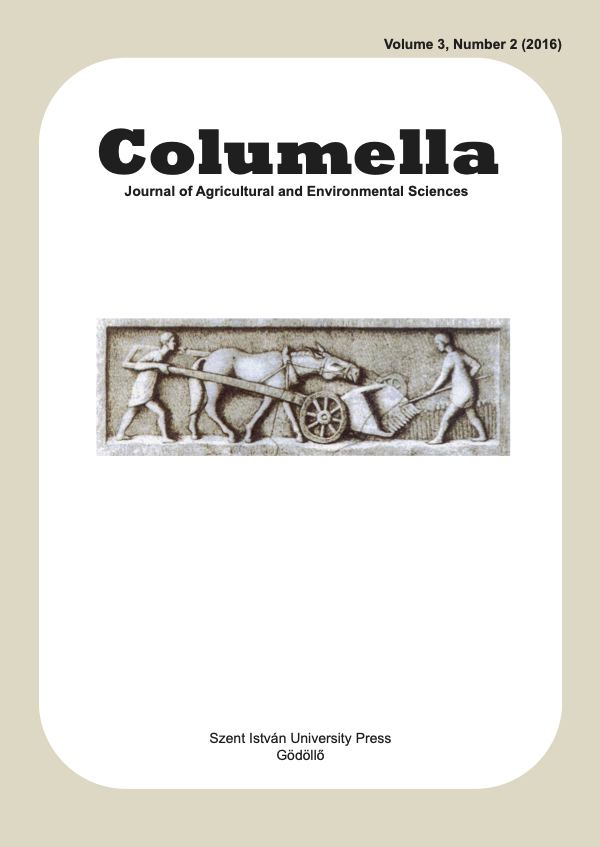Effect of leaf litter mulching on the pests of tomato
DOI:
https://doi.org/10.18380/SZIE.COLUM.2016.3.2.35Keywords:
Meloidogyne sp., leaf litter mulching, Phytophthora infestans, tomato, weedAbstract
Agricultural techniques essentially change the weed flora, pests and diseases of cultivated plants. Our aim was to investigate the effect of leaf litter mulch on the pests of tomato, especially on the weed flora and on three important plant protection problems: late blight (Phytophthora infestans), cotton bollworm (Helicoverpa armigera) and root-knot nematodes (Meloidogyne spp.). Besides mulching, the experiment consisted of irrigation, mycorrhiza-inoculation and artificial Meloidogyne-infestation. We recorded the natural P. infestans infection, Helicoverpa armigera damage and the species composition and cover of weeds as well. We examined whether leaf litter mulching had any effect on pests, and on the generative and vegetative production of tomato. Our results were that only mulching had a significant positive effect on almost all the measured generative and vegetative production parameters of tomato, while irrigation, mycorrhiza application and artificial nematode infestation had no significant effects on these parameters. Negative correlation was found between P. infestans infection and H. armigera-damage on tomato fruits. Mulching also reduced significantly the number of Meloidogyne-induced galls on the roots of tomato. Application of leaf litter mulch did not affect soil organic matter and soil pH within the growing season. In the beginning of the growing season mulching suppressed weed cover. Later, there was no significant difference between weed cover in the treatments. It can be concluded that leaf litter mulch had a more pronounced influence on the quantity of yield than on the damage and presence of pests and weeds.
Downloads
Published
Issue
Section
License
Copyright (c) 2016 Renáta Petrikovszki, Katalin Körösi, Péter Nagy, Barbara Simon, Mihály Zalai, Ferenc Tóth

This work is licensed under a Creative Commons Attribution-NonCommercial-NoDerivatives 4.0 International License.






